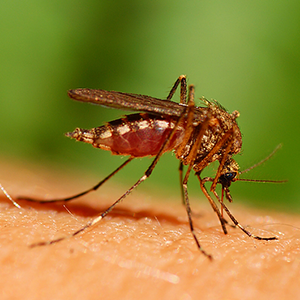Black flies, also known as buffalo gnats, are small, biting flies that irritate people and animals that live, work, or play near running rivers and streams. In North America, black flies do not spread disease, but their bites can cause swelling, bleeding, pain and itching.

As their name implies, black flies are usually dark in color and are 5–15 mm in length, with large, fan-shaped wings. Some black fly species are also referred to as “punkies” or “no-see-um’s.”
They attack around the eyes, ears, scalp and occasionally exposed arms and legs. Black flies also crawl into sleeves, boots or neckbands to access other vulnerable places, favoring the head just beneath the rim of a hat. Bites can cause swelling, numbness and soreness for many days.
Black flies attack both animals and humans, using blade-like mouthparts to slash a hole in the skin to feed on blood. The pain, swelling, blood and itching associated with the bite is the body’s response to the fly’s saliva.
There are more than 1,700 black fly species worldwide with 255 species in North America.

Black flies are sensitive to environmental conditions and are most active on cloudy, humid days with low wind.
Take these steps to avoid being bitten by black flies:

Confront disease-carrying mosquitoes, ticks and mice during spring and summer months. Simple landscaping tricks and tips to protect home’s exterior.

Preventing the spread of disease from animals to humans is a public health responsibility.